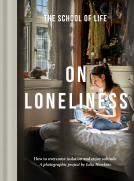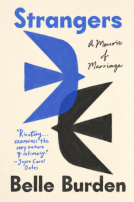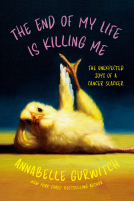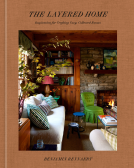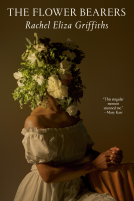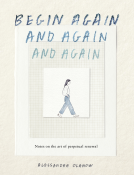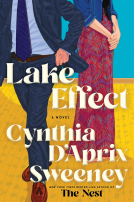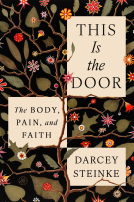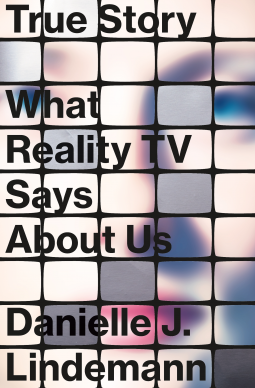
True Story
What Reality TV Says About Us
by Danielle J. Lindemann, PhD
This title was previously available on NetGalley and is now archived.
Send NetGalley books directly to your Kindle or Kindle app
1
To read on a Kindle or Kindle app, please add kindle@netgalley.com as an approved email address to receive files in your Amazon account. Click here for step-by-step instructions.
2
Also find your Kindle email address within your Amazon account, and enter it here.
Pub Date Feb 15 2022 | Archive Date Feb 15 2022
Description
Named a Best Nonfiction Book of 2022 by Esquire
A sociological study of reality TV that explores its rise as a culture-dominating medium—and what the genre reveals about our attitudes toward race, gender, class, and sexuality
What do we see when we watch reality television?
In True Story: What Reality TV Says About Us, the sociologist and TV-lover Danielle J. Lindemann takes a long, hard look in the “funhouse mirror” of this genre. From the first episodes of The Real World to countless rose ceremonies to the White House, reality TV has not just remade our entertainment and cultural landscape (which it undeniably has). Reality TV, Lindemann argues, uniquely reflects our everyday experiences and social topography back to us. Applying scholarly research—including studies of inequality, culture, and deviance—to specific shows, Lindemann layers sharp insights with social theory, humor, pop cultural references, and anecdotes from her own life to show us who we really are.
By taking reality TV seriously, True Story argues, we can better understand key institutions (like families, schools, and prisons) and broad social constructs (such as gender, race, class, and sexuality). From The Bachelor to Real Housewives to COPS and more (so much more!), reality programming unveils the major circuits of power that organize our lives—and the extent to which our own realities are, in fact, socially constructed.
Whether we’re watching conniving Survivor contestants or three-year-old beauty queens, these “guilty pleasures” underscore how conservative our society remains, and how steadfastly we cling to our notions about who or what counts as legitimate or “real.” At once an entertaining chronicle of reality TV obsession and a pioneering work of sociology, True Story holds up a mirror to our society: the reflection may not always be pretty—but we can’t look away.
Available Editions
| EDITION | Other Format |
| ISBN | 9780374279028 |
| PRICE | $30.00 (USD) |
| PAGES | 352 |
Average rating from 44 members
Featured Reviews
 Account D, Reviewer
Account D, Reviewer
this was a really interesting read, I appreciated the psychological questions the book raised and was invested from start to finish.
Danielle J. Lindemann, True Story What Television Says About Us, Farrar, Strauss and Giroux, 2021
Thank you, NetGalley, for providing me with this uncorrected proof for review.
True Story is an amusing, as well as academic, romp through American reality television programs. Some of the programs will be familiar to readers from other countries: Keeping Up with the Kardashians, Big Brother and Survivor; make over programs; televised cooking competitions; The Apprentice; modelling, singing, and dancing competitive shows; The Real Housewives. Some are American programs televised worldwide, others are home grown along the same modelling as the American programs. Some are entirely new to me, and possibly other readers will find the same. However, unfamiliar in their particulars they may be, but all reality television watchers will recognise the ‘rules’; the catch cries that belong to the genre – the television ‘characters’ and their audience; and, although we may need Danielle J. Lindemann to alert us, the way in which the shows play into the audiences’ lives while teaching new ways of looking at other people.
This is such as well written book, with its clarity, lack of jargon, attention to detail and comic as well as serious touches. Because I am recommending the writing style, I must acknowledge that I found the ample use of the phrase ‘off of’ jarring, but am assured that it is acceptable, and was so pleased at the lack of jargon thought of it as a tradeoff. To find an accessible, yet professional, book about television and not to have to wade through language that hides rather than illuminates the ideas is, in my view, the work of a thoughtful academic. Danielle J. Lindemann has written in a style to appeal to a wide range of readers so that they can understand reality television, think about what it means for its audiences and wider society. Her ideas are made powerfully through clarity and visibility.
True Story includes an index, a bibliography, endnotes, and information about the author in a section at the end of the book, and within the book. The latter is an important part of understanding Danielle J. Lindemann’s commitment to her propositions and their part in the world outside the real story enacted for an audience. As an inveterate watcher of various of the programs she describes and analyses, and an audience at times for the others covered in this book, Lindemann demonstrates her commitment to the audiences’ as well as the academic’s points of view, ways of understanding and recognition that the programs provide enjoyment as well as a source of learning.
The chapters cover topics which illustrate the contributions made to the genre by individuals, couples, and families; and cover childhood, class, race, gender, sexuality, and deviance. Programs such as Candid Camera, Queen For A Day, and An American Family are seen as forerunners to The Real World which Lindemann suggests was the first of the reality TV shows. She bases this on the characteristics that have moved over into more recent examples of reality television. Programs that are covered in some depth include Survivor, The Real Housewives of New York City/ Atlanta/ Beverly Hills/Orange County, The Bachelor, The Millionaire Matchmaker, Keeping Up with the Kardashians, Supernanny, Toddlers and Tiaras, Here Comes Honey Boo Boo and The Apprentice (with reference to former President Donald Trump and the role of reality television images in his Presidency). However, it is not suggested that this is the full repertoire. There are references to many programs. In addition, programs are chosen to identify the impacts on their audiences and wider society, therefore providing frameworks which can be applied to programs not covered by Lindemann. What is learnt from this research can be easily translated to more well-known local reality programs by audiences unfamiliar with some of the American examples.
Danielle J. Lindemann makes a strong argument that reality television reaches a wide audience; that characters from the programs are well known, in some cases, beyond important public figures; that reality television shows are a huge proportion of television programming; and that even those who do not watch know their ‘stars’ and are influenced by them. She suggests that regardless of reality television being disparaged, it is part of commonplace understandings which impact on how people see complex social forces. Some of these influences are glaringly apparent when social issues become a conscious part of programming. Also profoundly influential is the unconscious way in which people on the programs provide information about their lifestyles, beliefs, and behaviour. The popularity and pervasiveness of the programs and the ideas they engender make this book a valuable tool in understanding reality television, its audiences and the ideas that both propel into the society in which audiences and non-audiences interact, impacting on personal interaction, policies and eventually, possibly the choice of governments.
I always feel like somebody's watching me. And I have no privacy...Lindemann explores the phenomenon of Reality TV from a sociological perspective analysing what it says about Americans as individuals and American culture.
About 20 years ago, the first season of the British reincarnation of Big Brother UK (2000- 18) took the UK by storm. This was on reflection a surprise, as a lot of it was dull as hell as it comprised of watching them sleeping until at least midday. Yet we still watched - in our millions - just in case something dramatic happened (spoiler, it usually didn't).
Three years later, some of us - including myself - watched celebrities swap wives in the UK version of Celebrity Wife Swap (2003-10). I mean who wouldn't want to see what would have happened if Vanessa Feltz had married Paul Daniels, and was stepmother to his children instead of his real life wife, Debbie McGee?
In her book, True Story What Reality TV Says About Us, Danielle J. Lindemann PhD writes about her observations from USA's reality TV in relation to American individuals and groups with regards to sociological groups and themes. However, Lindemann's research methods - studying our own national reality shows, history and sociological studies - could be used to find out more about our own individual countries.
The American Sociological Association defines sociology as;
the study of social life, social change, and the social causes and consequences of human behavior. Sociologists investigate the structure of groups, organizations, and societies and how people interact within these contexts.
This book was a fresh and illuminating perspective of this theory in relation to this television genre. Her findings - were like she warned... - included both recognised insights and surprising conclusions.
Lindemann's illuminating introduction to reality television struck a chord with this Brit. I believe like this author that this genre - often labelled as Trash TV and a guilty pleasure - could be used as a tool to tell us about a country's culture - and collective beliefs - in relation to preferences, norms, taboos and social inequality.
She demonstrates that her findings - from observing these extreme personalities and archetypes and defined collective groups in these shows - are strikingly similar to recorded and known historical and sociological perspectives. In looking at reality shows Lindemann tells how these perspectives impact Americans beliefs now and "shapes us (them) as individuals".
Lindemann outlines the ambiguousness around the American historical origins of this TV genre. However, she argues that it was over 25 years ago in The Real World: New York (1992) series. Lindemann believes that this show had many familiar characteristics to today's reality television shows.
She concurs with others that Survivor (1997-) - based on a Swedish show - thrust this genre into the spotlight. This as this show was cheap to make - but commercially profitable - TV. The show led to a boom in this genre - particularly during the writer's strike of 2007 - and this TV genre is now part of the "cultural ether".
In her introduction - as a Scot - I agreed with many of Lindemann's thoughts and insights into this (international) TV genre. She tells how many watch this genre for "voyeuristic pleasure" (we love watching the crap hit the fan for others) and for the "social connection" (as everyone's talking about it). I am sure I am not alone in loving it when Mary confronted Christine in America's Selling Sunset (2019) and I do confess to blabbing on about the finer points of those dating contestants in the Finnish reality dating show, Sinkkulaiva (2013-14) on my blog.
Lindemann argues that this unscripted genre teaches about culture through our connections (as we know people who are similar to the participants), empathy and participation with - such as by voting - the participants. This as we watch the unscripted drama experienced by those exaggerated archetypes and the clashes of these extreme personalities in these shows.
She illustrates in her book, that Americans are more "conservative" than they think on a wide range of issues. She provides extensive research from sociologists, anthropologists, culture and media writers and historians to support current American beliefs as gleaned from these shows. Lindemann argues convincingly that all these shows tell us about ourselves, as individuals and groups of all kinds and these shows "are beacons of our retrograde values".
She confesses to being a fan of this genre, and here I felt a personal connection with Lindemann. Lindemann told of being hooked on these shows, their "anaesthetic effect" and her desire to know what happened to participants after the show. Who hasn't looked up to see if some of the notable couples who met on Big Brother UK are still together?
Following this interesting and succinct outline of this genre, her book has two distinct parts to it, each with five chapters. The first section looks at the basics of Sociology - in relation to ourselves and different group sizes and types - and then the second half explores these in relation to distinct sociological themes. In all these chapters, Lindemann supports her sociological theories with the evidence of these themes within a wide range of television shows (and vice versa).
Each of the chapters looks at a sociological term or subject in relation to reality TV. They follow the same basic outline, but with their subtopics specific to the subject. Lindemann's chapter title names the term alongside a relevant quote from a reality show. She illustrates this theme with a key scene from a relevant show which illuminates this theme "in action" on a reality TV show. For example, a scene with the Kardasians is used in her chapter about family.
She then explores how this theme can be thought about from a sociological view in relation to history, sociological theory and the present day. This seen in participant's (often extreme) personalities and their behaviours and experiences on screen, both individually and as a group. She then explains how her conclusions "shape us as individuals" and as a society and country.
She adds research from a wide range of sources. Subtopics are analysed in the same way. She also explores these themes in relation to "authenticity" and in this, she tells how as humans we condone participants who are not "real" in their on-screen selves as they change to pander to the audience.
Sociological terms are explained by backing up her definitions with her relevant observations and examples from these shows. This outline was used in all the chapters made sociology accessible and interesting to those who haven't studied this subject and for those of us who have, we discovered some credible and telling insights.
I believe the chapters can be read individually and also the book as a whole, as there is often some overlap in her topics. Interestingly she tells how the first series of The Real World related to these sociological topics specifically - she calls it "Sociology 101" - where the participants often explored topics like racism in their group discussions. In the present day, these sociological topics are more likely observed through the participant's personality, behaviours and experiences on screen.
In Part 1's chapters, Lindemann steers through how individual personalities, twosomes, threesomes and set groups are reflected in these shows. Her chapters show how theme-related reality shows show how these group types develop in broader society, in relation to our expectations and shared history.
To give an example of these sometimes controversial and shocking findings, she explored how current America's date preferences are seen in reality TV. She argues that in The Bachelor (2002-) - and its spin-offs - the participant's choices are not random but instead previously learned either innately and from others.
Lindemann demonstrates how current Reality TV shows participants have strikingly similar expectations of their date's gender roles and race which echoes those documented from previous generations. These "choices" are also reflected by society in different collective groups. She also tells how we gauge how authentic an on-screen participant is within these dating and wedding based shows, by exploring the role of love.
Part 2's chapters tell how distinct sociological themes are explored in these shows, such as race, gender and deviance. These sociological themes are defined and illustrated with vivid descriptions from a wide spectrum of shows. Interestingly Lindemann tells how in reality TV many of these themes are focused on predominately in shows featuring heterosexual white groups or in familiar stereotypes. I was happy to learn these reality shows now include more diversity, particularly in race and gender.
Like it or loathe it, Lindemann put the "real" into reality TV as a TV genre. She has identified us all as only human, with strengths and weaknesses as individuals and as groups in our cultures and subcultures. Sociology was never made this interesting at University.
Her love of this genre is felt reading her vivid descriptions of an enormous array of shows of all kinds and in her detailed knowledge of show participants biographical details. However, Lindemann stresses this book is a "love letter" to Sociology and not this TV genre. And I must admit, in these descriptions, I found more than a few new shows to binge on (and review from this perspective).
There were a few mentions of other countries in this book, telling of the USA's different views regarding teenage sex to Holland, the Brit's controversial show So There's Something About Miriam (2004) and of the strong influence of reality TV in the Middle East.
Finally, as a Scottish expat living in Finland, I'm now wondering just what these series this author would make of reality TV Finnish style. Wikipedia lists only 25 shows in this genre shown here - many with international beginnings - with Finns and I am sure there are more. But with increasingly more international shows added to our TV channels lineups universally, these prove for one and all that the world's a stage.
 Tracy D, Reviewer
Tracy D, Reviewer
A deep dive into a sociological study of American culture through Reality TV programming. Interesting, if a bit in the weeds at times.
such an interesting look and deep dive into the mechanics of reality tv. a really good and enjoyable non fiction read in this instagram curated world we are all living in. not too academic and accessible! I really enjoyed my time with this one.
 Abby S, Reviewer
Abby S, Reviewer
Well written very revealing look into the world of reality tv. A sociological study of how society is effected by these shows and apps like Instagram.I really enjoyed the book and will be recommending,#netgalley#fsg
As a fan of reality television Bachelor and Amazing Race franchises, I was interested in this book. True Story is a sociological deep dive into the history of reality television-from the 1950s to the first season of Survivor which kicked off reality television as we know it today. The author spends a great deal of time detailing how reality television influences our lives and world views in almost undetectable ways. I found it all very interesting, particularly the second chapter which focused on The Bachelor. There are many, many examples of every concept. I’d recommend to anyone who ever found themselves sitting in the couch watching a reality show and thought, “Why am I enjoying this so much?” Thanks to the publisher, author, and Netgalley for allowing me to read and review this book.
This ARC was provided to me via Kindle by Farrar, Straus and Giroux and #NetGalley for my honest opinion.
As a long standing fan of reality tv this was ax interesting read.
"True Story" by Danielle Lindemann is a history of reality television in America and how it is a reflection of and a guiding force in our everyday lives. At the most basic level, conflict sells, and much of reality television is about putting together people with different points of views and life experiences. This is often times accompanied by a lot of alcohol to ramp up conflict. To me, what this book really focuses on though, is though is how what is selected and who is chosen to be featured in reality tv shows are those people who most glaringly reflect societal norms and history. As Lindemann points out, very few reality shows feature Black, queer, indigenous, or Asian characters, which is based on the industry's idea of who viewers want to fill the screen of coveted prime time spots. Also, viewers are also drawn to watch people whose lives are very different than their own, and who are portrayed as obscene or obsessive, ex. "Honey Boo Boo", "Toddlers & Tiaras", or intervention shows. I really loved this book for its novel way of discussing American society and history and definitely recommend it.
This book was so interesting to read as it is a deep sociological dive into reality tv! Sociology + TV = sign me up! I thought the author did such a great job balancing information with examples. There are also so many sociological themes - including the self, couples, groups, families and childhoods AND the book covers class, race, gender, sexuality, and deviance. Overall, I would highly recommend if you are interested in learning more about how reality TV reflects society.
4.5 rounded up
Thank you to the author, Farrar, Straus and Giroux, and NetGalley for providing an early copy to review!
 Anais S, Reviewer
Anais S, Reviewer
📒 summary + notes
Reality TV is one of the most representative examples of popular culture; it is spread worldwide and covers tons of subjects and kinds of people. This is why it makes it such a good subject to analyze and study. I never thought I could learn from reality TV. When one doesn't watch this kind of show, they can feel a little out of it, or beyond it. Yet, this is redhibitory and this book is accessible and enjoyable to everyone that has an interest in society, not necessarily in reality TV.
🚀 the book in 3 sentences
1. Turning something as common as reality TV into a subject of reflection.
2. Realizing that we are so predictable.
3. reality TV doesn't represent only a part of the population, but our whole society.
🎨 impressions
I was really skeptical about this book, as I am not really a reality TV person. moreover, I'm French and I don't have this whole American TV culture. Nonetheless, it did not prevent me from understanding everything and applying the US examples to French ones.
who should read it?
Everyone who is a little bit interested in the way our society works, in human relationships and behaviors.
☘️ how the book changed me
- It is enlightening because we all think we are different and don't act like the group, but well, we don't. Our global path is already defined and thinking out of it is hard.
- The book did not convince me to watch more TV shows, nor to avoid them. The author simply studied them, without expressively judging them; I liked this approach of not considering something as good or bad but simply taking it for what it is and learning from it.
✍️ my top 3 quotes
- "While that may seem an extreme or outdated example, today too, we have separate boys' and girls' bathrooms, even for elementary school students - a practice that arguably stems from anxiety about (heterosexual) sexuality. In the US, we cover up little girls' torsos at the beach, even though they don't have breasts. While many of these tactics to protect children from sex presume heterosexuality - further evidence of our heteronormativity - parents try to shield their children from homosexuality as well. Consider, for instance, the father who will not let his son play with a kitchen set or take ballet class, for fear of "turning him gay" ".
- "These distinctions matter, Bourdieu argues, because taste then becomes a signifier of social status and a form of the shared culture that helps to coalesce those within the same class. Elite tastes become a form of capital that facilitates the transmission of social status from one generation to another, thus maintaining the class culture. Consequently, certain tastes are connected with certain class positions, and a hierarchy is created"
Special thanks to Netgalley and [Farrar, Straus, and Giroux](https://www.netgalley.com/catalog/pub...) for sharing a copy of this book with me in exchange for an honest review.
As someone who is fairly well-versed in concepts of psychology, but not so much in sociology, this was a very interesting read and I didn’t feel confused or off-put by any terms I may have never heard of. As someone who isn’t a fan of reality tv I loved this book for helping give me more reason not to watch it from a scientific perspective :P
True Stories, What Reality TV Says About Us takes a deep dive into one of the least respected genres of television from a sociologist’s point of view. Basing her research off of reality shows based in the United States, Lindemann provides a well researched and personal account of her love of these types of shows for the entertainment and stress free viewing they provide, in particular during Covid, but also sources various sociologists throughout to help the reader realize that what we are viewing is really a reflection of our society. The book breaks down all the ways in which stereotypes from getting married, gender, race, class, etc. on these shows with “real” people mirror our own views as a collective. Though many of us like to think we’re better than reality TV, Trump as president is used as a cautionary reminder that we should be paying more attention that we have before; the medium holds a lot of power. Overall I learned from this book and it did make me think about the way I have been consuming these types of shows.
I am a recent convert to reality TV, and this book was a fascinating dive into why exactly I find it so fascinating. I particularly appreciated how much Dr. Lindemann used actual examples from shows, breaking down interactions into parts. It was a quick, digestible read.
 Lilian Astrid G, Reviewer
Lilian Astrid G, Reviewer
Lots of the series Danielle J. Lindemann describes or comments on, can't be seen in Germany, and actually I am not a Real TV fan, anyway. But I do love series, and I am always curious, so in spite of not knowing many of the programs she comments on, I enjoyed the read. Quite diligent work, and certainly informative for all TV lovers.
What a fantastic meditation on the various sociological windows we can view reality TV through. This does a great job of breaking down the many lenses of sociology and reality TV (what do we use it to say about class? gender? sexuality?), as well as how these combine. The breadth of shows used is great, and made me realize how different styles of show can be used to sell the same message.
This easily could have been super dry and academic (and wouldn't have been a worse book for that!), but that it's both this deep and thoughtful AND highly readable is fantastic. I opened this expecting to really need to chew my way through it but devoured it easily instead.
Interesting book on reality television and how it influences/has influenced people. Racism, sexuality & other things like not conforming to stereotypes are discussed with plenty of examples. I have no background in sociology, I just like to watch "easy entertainment" like The Hills or other reality TV shows sometimes. A background is not needed, the book is clear, easy to read and entertaining. I learned something from this book about why watching reality TV is so attractive to people, but can also be a source of the spread of hate and misinformation.
“Reality TV is important to understand, not only because of what it can tell us about our lives but because of what it does to us. The experience of watching these shows, like looking in any mirror, is interactive. We see ourselves, and then we groom ourselves accordingly.”
I’ve had a love-hate relationship with reality TV through the years. I’ve started enjoying it more recently, and been intrigued by the people and show concepts. When I heard about True Story, I knew I wanted to read it because it combines my love of Sociology with my interest in the reality genre 😁
Mainly focuses on reality shows from the US. Really interesting look at various reality shows, highlighting both the positive and negative aspects. Some of the shows talked about include The Bachelor/Bachelorette, Real Housewives, Toddlers & Tiaras, Cops, Survivor, and Real World.
Each chapter focuses on a sociological theme or principle that reality TV illuminates: the self, couples, groups, families, childhood, class, race, gender, sexuality, and deviance. As someone who studied Sociology, I enjoyed seeing the theories I learned about in school being applied to this form of media!
A lot of us, whether we watch reality TV or not, may view the genre as a “guilty pleasure” since we don’t “get” anything from these shows. I liked that the author pointed out that the same is true of professional sports: “[they] don’t have intellectual value either, and we don’t regularly refer to them as ‘guilty pleasures.’ There are other potential reasons for our disdain for reality TV: because, unlike sports, it’s a genre associated more with female viewership than male and we tend to devalue cultural products geared toward women.”
It could be slow and overwhelming at times, but I found that it was much more interesting/attention grabbing when I read it while I was in the right headspace!
 Jessica G, Librarian
Jessica G, Librarian
A great sociological analysis of reality TV. This book would be perfect for students or casual readers wanting to learn more about how reality TV informs cultural practices, with an emphasis on race, gender and class.
I’m unashamed to admit that I love reality TV. The Bachelor? Appointment viewing. The Masked Singer? The highlight of my week. Love Island? A true study of human psychology.
The genre gets a bad reputation but it has had a real and significant impact on culture and society which is exactly what Danielle J. Lindemann breaks down in TRUE STORY: WHAT REALITY TV SAYS ABOUT US.
This is not a look at the history of the genre or about specific shows, but rather how society has impacted reality TV and vice versa. Lindemann is incredibly well-versed on the topic and offers an in-depth look at how society’s feelings about gender, race, and sexuality have impacted the kinds of shows that are produced, and how the consumption of those shows impacts our views on those subjects in turn.
This book is not a light and quick read. It values content more than style and feels like a textbook you’d read in a media studies course. I definitely learned a lot though.
The Bottom Line: An academic look at the sociological impact of reality TV that will give you a lot of talking points for your next dinner party. ⭐️⭐️⭐️
Thanks to NetGalley and Farrar, Straus and Giroux for the eARC!
As someone who works in the TV industry I found this analysis of our current trends to be absolutely fascinating. The societal impact of reality tv cannot be ignored and this account is interesting, in-depth, and engaging. absolutely loved it.
This would make for an entertaining textbook. As someone who loves talking seriously about things that most people don’t take seriously, I appreciated the scholarship behind this book. This is a good introduction to the reality tv genre, but I wish that the book had taken a closer look at the history of the genre, as well as some of the reality tv giants.
 Reviewer 730452
Reviewer 730452
I really enjoyed this sociological look into the world of reality television and our attraction to it. Lindemann raised great points and drew compelling parallels between that world and the one the rest of us live in. Even for someone who doesn't watch reality tv (which is not me!) there is a lot of content worth reflecting on and one can certainly see how it has influenced everyone, participant or not.
Readers who liked this book also liked:
Annabelle Gurwitch
Biographies & Memoirs, Health, Mind & Body, Humor & Satire
Benjamin Reynaert
Arts & Photography, Home & Garden, Reference
Alessandra Olanow
Arts & Photography, Religion & Spirituality, Self-Help




